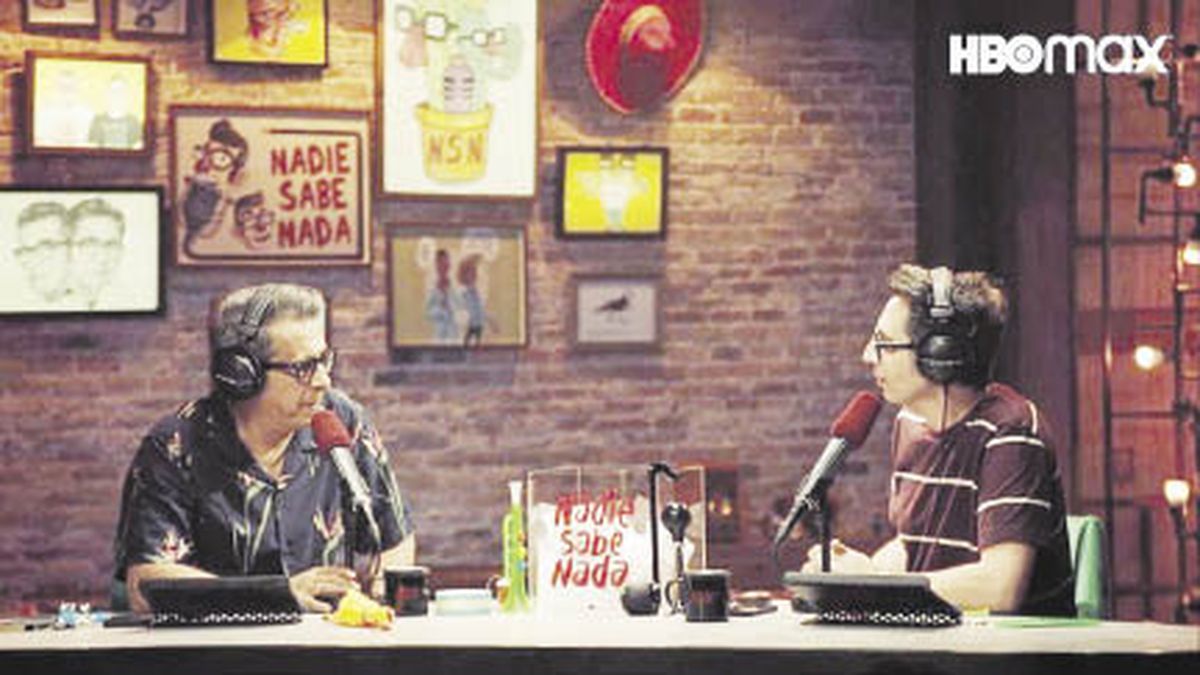Journalist: What is it like to make humor today, in a context of sensitivity in which much of what is said can be politically incorrect or offensive?
Berto Buenafuente: It has never been easy, the easy thing is to assess comedy work from the perspective of time, but for Monty Python when they made “The Life of Brian” it was not easy either, they had many problems and controversies, they almost got hit. Now they express themselves in networks or they can create a platform to make their downloads. It is true that it seems that everyone is nervous or hypersensitive, but that is not bad either. As a comedian, it forced me to get my act together on issues that I had neglected before, such as feminism. But I started with humor in 2008 and it was another planet, I could make sexist jokes or gags with women as sexual objects and nothing happened, society at that time tolerated it, not today. But I don’t like to get into trouble, I just like to make people laugh without making people angry.
Andreu Buenafuente: The comedian is part of a system, he is not an enemy, in any case it will be the system that destroys from within. We are citizens of this world, not aliens, and we know that we are in a world that is being transformed into something fairer, in quotes. I live it normally and also we don’t have a record that explores poignant territories, we are in everyday surrealism, in white humor that makes life easier.
Q.: How was the humor of when you were kids in relation to the humor of today?
BB: The more I intellectualize or rationalize it, the less funny I become. I try to make comedy spontaneous and intuitive, I don’t know how to compare old comics with modern ones, and even less young ones. The more I advance in this business, or better, I like to call it a trade, the less I know about it. I hope it’s wise and not older.
AB: It is indecipherable when humor is generational or transgenerational, when it is a classic or liked by the elderly or the young. The humor is unfathomable, one is pulling and then time puts you but one does not know. When I started, those who studied the audiences told me that I arrived at various ages and that this was not very normal. I’ve worked like this all my life, I’m getting older and the public moves, if we reach a varied public I’m happy.
Q.: How is this landing on HBO Max after going through radio, podcasts and YouTube?
AB: It is unprecedented for a podcast to become a TV program for the whole world. We say that we want the platforms to risk different content and they do; It is something that if it were not mine, I would see it as a spectator eating popcorn.
bb: It seems to me a brave move, because we did not betray the improvisational conversational podcast format, we passed it to a TV format for the platform and that has many dangers and pitfalls, it is risky and the risk is assumed. Because by converting the format you can standardize and kill, but the platform does not shake its pulse and creates spaces to generate surprise, for example, with trips and crazy ideas that do not collide with the philosophy of improvisation. It is the first platform that does it, going from a podcast to a TV show.
Q.: “No one knows anything” is a famous industry phrase that alludes to the fact that the public’s taste is unfathomable.
AB: It came up for me in a conversation with the writer Juan José Millás, who saw me one hectic, heavy day, and told me “nobody knows anything”. It arose like that and opened a ten-year path for me.
BB.: Andreu is good at putting titles, he sums up the concept of the product well in one sentence and the sentence not only alludes to the truth that William Goldman speaks of, in that no one has the key to success, but it is very clear that this program are two gentlemen who did not prepare anything and talk to their pants off.
Source: Ambito
David William is a talented author who has made a name for himself in the world of writing. He is a professional author who writes on a wide range of topics, from general interest to opinion news. David is currently working as a writer at 24 hours worlds where he brings his unique perspective and in-depth research to his articles, making them both informative and engaging.




